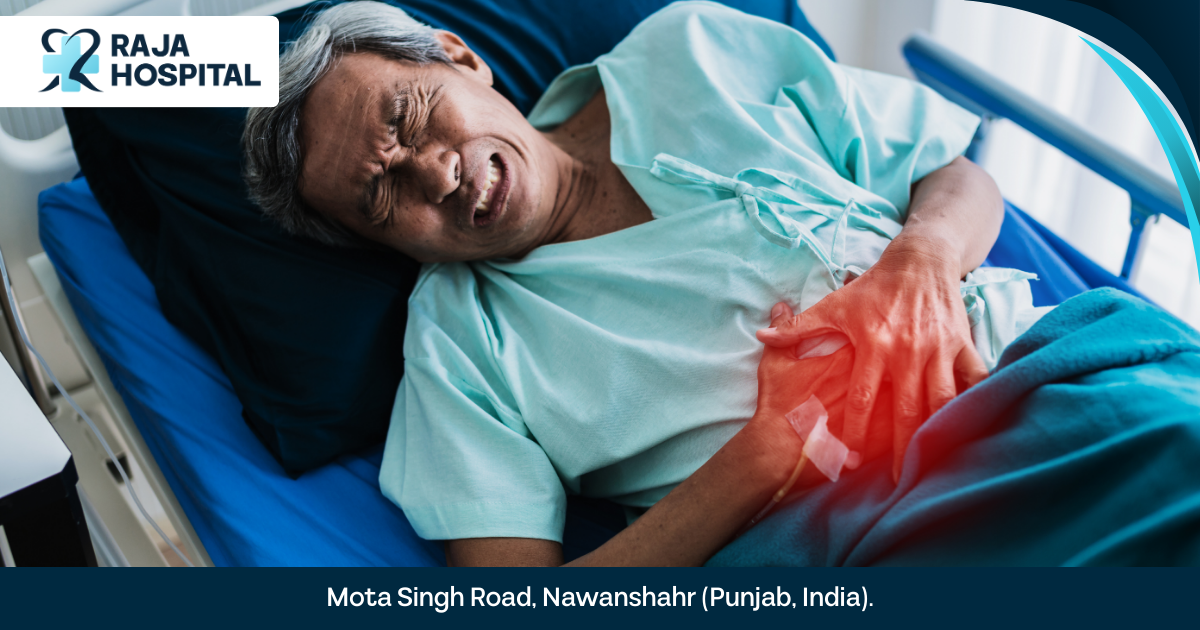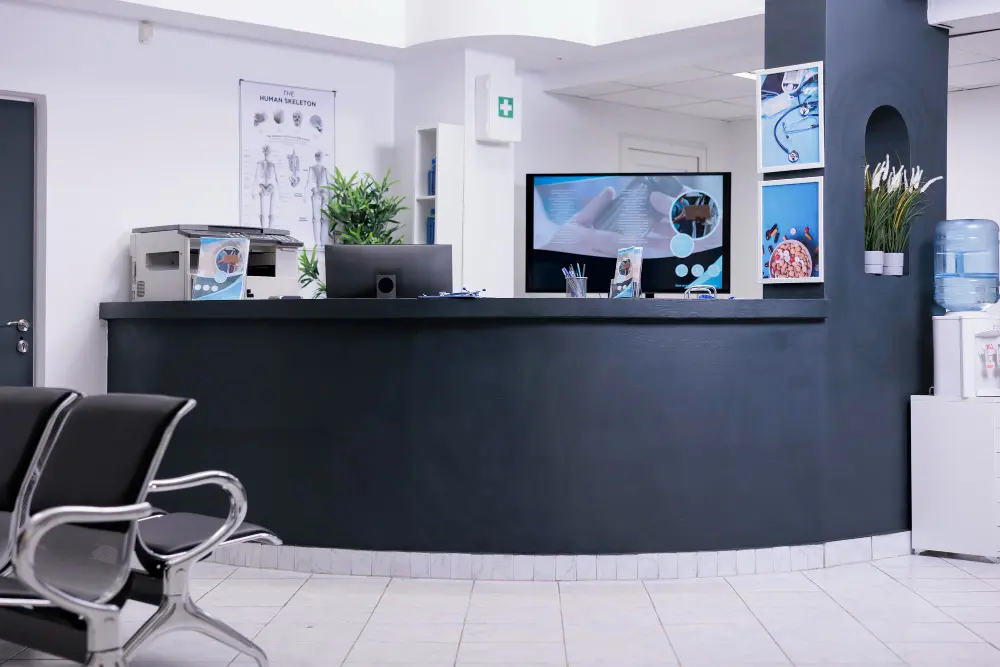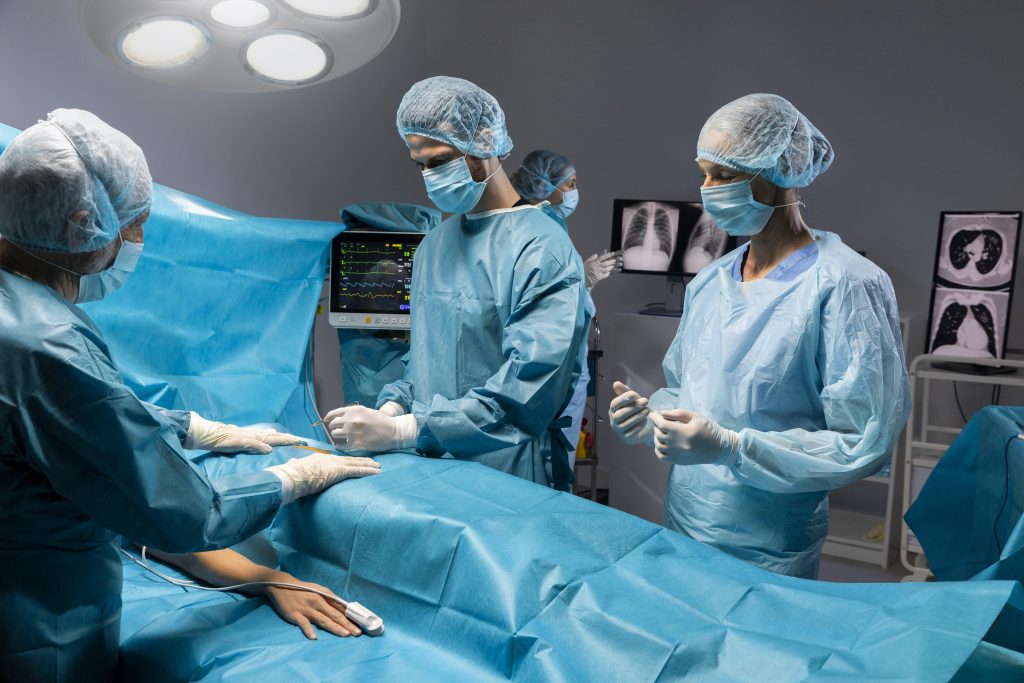Hernia Surgery in Punjab: 7 Essential Things to Know

REVIEWED BY Dr. Abdul Basit Khuroo (MBBS, MS GEN. SURGERY) on 22nd November 2024.
You are probably reading this because you or someone you know is about to undergo a surgical procedure to correct a hernia. I understand it. Simply the term ‘surgery’ raises a lot of questions in mind along with some amount of fear. When my uncle was first told that he would need hernia surgery, for instance, he had feelings of apprehension and anxiety (relief yes since the irritating pain will be no more, and of course, it’s surgery!). But then once we were clear about how it worked, the recovery as well as the preparations, it became far more simple. Alright then, let’s tackle this challenge together! This guide is quite broad and covers everything from knowing the hernia and its types to preparations for a surgery and recovering from it.
Struggling with same?
Book Your Appointment With Our Expert Doctors

What is a Hernia?
A hernia happens when part of an organ or tissue pushes through a weak spot in the surrounding muscle or tissue, creating a bulge. While it might start as a small inconvenience, a hernia can lead to more serious health issues if left untreated.
Common Types of Hernias
There are a few types of hernias you might hear about. Knowing what kind you have can help you and your doctor decide on the best treatment plan:
- Inguinal – The most common type, especially in men, where tissue pushes through the groin muscles.
- Hiatal – When part of the stomach moves up through the diaphragm, often causing acid reflux.
- Umbilical – Common in infants, this hernia appears near the belly button and often goes away on its own.
- Incisional – Develops at the site of a previous surgery, where the tissue is weaker.
Symptoms and Early Warning Signs of a Hernia
Symptoms and Early Warning Signs of a Hernia, Here are some common signs to watch for:
- A noticeable bulge in the abdomen or groin
- Pain or discomfort, especially when lifting or coughing
- A feeling of heaviness or pressure in the affected area
- Heartburn or trouble swallowing (for hiatal hernias)
- Weakness or discomfort that seems to linger
Why Hernia Surgery May Be Necessary

If you’re dealing with a hernia, surgery might seem like a big step. However, there are times when it is the most effective method to stop the worsening of the signs so that there are no complications in the future. Let’s break down when surgery might be necessary, and examine what happens when hernias are not treated.
When to Seek Medical Attention
If you’re feeling constant pain, notice a bulge, or find it hard to go about daily activities, it’s a good idea to consult a doctor. Hernias can get worse over time, and addressing them early can make all the difference.
Potential Risks of Leaving a Hernia Untreated
Untreated hernia is not just painful, and health conditions might also arise, and some of them including:
- Extreme pain if the hernia becomes strangulated
- Intestinal blockage, which can cause nausea and vomiting
- Potential tissue damage or infection
- Increased difficulty in repair if the hernia worsens
Advantages of Surgical Repair
Getting surgery might seem daunting, but here’s the good news – hernia repair offers plenty of benefits:
- Fast relief from chronic pain or discomfort
- Lower risk of future complications
- Improved quality of life and activity levels
- Less worry about worsening symptoms over time
Why Choose Raja Hospital for Hernia Surgery in Punjab?

Now, let’s talk about where to get the best care. Raja Hospital has gained a good name for the best hernia surgery. Here’s why they’re a great choice for hernia repair:
- Advanced, state-of-the-art surgery options for all types of hernias.
- Expert surgeons with experience in open and laparoscopic approaches.
- Patient-first approach with attentive aftercare and recovery support.
- Affordable yet high-quality care right here in Punjab.
Types of Hernia Surgery in Raja Hospital:
When it comes to surgery, knowing your options can help you feel more comfortable. Here are the two main types of hernia repair in Raja Hospital:
- Open Hernia Repair – This method involves a single incision near the hernia to push the tissue back into place and reinforce it. It’s a reliable option, although recovery may take a bit longer.
- Laparoscopic Hernia Repair – This minimally invasive option uses small incisions and a camera to guide the procedure, often leading to quicker recovery times.
How to Prepare for Your Hernia Surgery
Good preparation can set you up for a smooth surgery experience and an easier recovery. Here’s what to keep in mind:
- Pre-Surgery Consultation and Tests:
- You’ll likely have blood work and imaging tests to ensure you’re ready for surgery.
- Your doctor will discuss the details of the surgery and what to expect.
- Dietary and Lifestyle Preparations:
- Follow any pre-surgery fasting instructions (usually no food or drinks 8 hours before).
- Make arrangements for someone to drive you home.
- Complete any other steps recommended by your doctor to ensure you’re well-prepared.
During Hernia Surgery
Knowing what’s happening during surgery can make it a little less intimidating. Here’s a general overview:
Average Duration and What Happens in the Operating Room:
- Most hernia surgeries last 30 minutes to 2 hours.
- The procedure begins with anesthesia for a comfortable experience.
- The surgeon will use either open or laparoscopic techniques to repair the hernia.
- Once finished, the incision is closed, and you’ll be moved to a recovery area.
Possible Risks and Complications of Hernia Surgery
Every surgery has some risks, though hernia repairs are generally safe and well-tolerated. Here are a few to keep in mind:
- Infection around the incision area
- Possible blood clots
- Rare recurrence of the hernia
- Some tenderness or limited movement initially
When to Contact Your Doctor?
If you notice any unusual pain, fever, or swelling after surgery, don’t hesitate to contact your doctor. Quick attention to these signs can prevent complications.
Recovery After Hernia Surgery

Recovery times can vary, but most people feel much better within a week or two, with full recovery usually within a month.
Tips for a Smooth Recovery:
- Take it easy – rest as much as possible and avoid lifting anything heavy.
- Stick to a nutritious diet to support healing.
- Use medications as prescribed to manage any discomfort.
Lifestyle Adjustments to Prevent Hernias in the Future
Yes, hernias can happen again, but there are a few adjustments you can make to lower that risk:
- Maintain a healthy weight to avoid extra pressure on your abdomen.
- Practice proper lifting techniques to protect your core.
- Avoid smoking since it can weaken tissue strength.
- Eat a high-fiber diet to prevent constipation, which can put a strain on muscles.
Remember, choosing a reliable hospital like Raja Hospital for your initial surgery can help ensure your hernia repair is done right the first time.
Struggling with same?
Book Your Appointment With Our Expert Doctors

FAQs
Conclusion
So, if you or somebody you care about is thinking about hernia repair, don’t let it seem like a mountain to scale! Given the appropriate data, a head start and a reliable hospital, there can only be a confident walk forward. At Raja Hospital, we’re here to make sure you receive the best possible care. Make the first step toward an unpainful life – contact us today to learn more about your choices!
